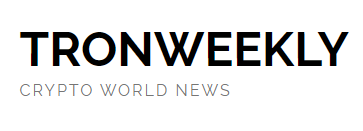January 16, 2025 by Mwongera Taitumu
- Hong Kong courts serve tokenized legal notices to illicit Tron wallets.
- Court orders help freeze assets but fail to stop some illicit transfers.
- Tokenized notices offer new way to tackle anonymous blockchain crimes.
Hong Kong has taken a bold step in the fight against crypto crime by issuing tokenized legal notices to anonymous wallets holding stolen assets. This innovative use of blockchain technology aims to strengthen enforcement and transparency in digital transactions.
Hong Kong issues tokenized legal notices
Hong Kong courts have taken a revolutionary step by serving tokenized legal notices to illicit crypto wallets. These notices, which utilize blockchain technology, aim to freeze stolen assets in anonymous wallets. This move marks a significant shift in the legal actions taken against cybercriminals in the cryptocurrency space.
Hong Kong court recently issued tokenized legal notices to two Tron-based wallet addresses. These wallets had been used to store stolen assets, including 2.65 million USDT. Although the notices to freeze some assets arrived late to Tron, the court managed to freeze approximately 1 million USDT.
The decision to use tokenized legal notices seeks to address the growing challenge of serving legal documents to anonymous crypto wallet holders. In-person delivery or email of legal documents have proven ineffective in the context of blockchain-based crimes. Legal experts in Hong Kong believe this approach bridges the gap between conventional law enforcement and decentralized cryptocurrency networks.
Progress in combating crypto-related cybercrimes
Joshua Chu, a cybersecurity consultant, appraised the importance of tokenized notices in avoiding more illicit transactions. He said that centralized exchanges are bound by anti-money laundering and know-your-customer (KYC) laws and are likely to avoid engaging with suspicious wallets. This enables increased accountability for cryptocurrency exchanges that operate within regulated environments.
 Ground breaking : Hong Kong Issues Tokenized Legal Notices Illicit Tron Wallets 4
Ground breaking : Hong Kong Issues Tokenized Legal Notices Illicit Tron Wallets 4Source: Tronscan
Macro Systems, a cybersecurity and blockchain solutions company, provides the technology used in these tokenized notices. Although the current system primarily targets Tron, it is also being tested on Ethereum and Polygon blockchain networks. The technology is set to expand its reach further with potential applications for Bitcoin.
In 2023, Hong Kong saw its first four court orders related to blockchain addresses, including Tron wallets. These cases included injunctions against wallet addresses, reflecting a growing trend toward digital justice. As blockchain technology becomes more integrated into legal frameworks, there is optimism that similar approaches will be adopted across the world.
 Ground breaking : Hong Kong Issues Tokenized Legal Notices Illicit Tron Wallets 5
Ground breaking : Hong Kong Issues Tokenized Legal Notices Illicit Tron Wallets 5Global Adoption of Tokenized Legal Notices
The UK has also experimented with blockchain technology in the legal field. In the case of ‘Osbourne v Persons Unknown’, the High Court of England and Wales allowed legal documents to be served via NFTs. This innovative approach mirrored previous decisions, such as the D’Aloia case, which also used NFTs to serve legal notices.
The US has witnessed similar cases where courts allowed legal documents to be served through blockchain. In the ‘LCX AG v John Doe’ case, the New York Supreme Court permitted the use of NFTs to issue legal notices to anonymous defendants. These cases highlight the legal system’s adaptability to digital advancement, despite challenges in enforcement.
Hurdles in Tokenized Legal Notices
The adoption of blockchain-based legal notices continues to face enforcement challenges. Hong Kong legal practitioners are still unfamiliar with the mechanics and benefits of blockchain technology, which slows down implementation. However, courts remain interested in using digital methods to enforce legal rulings, especially when traditional methods fail.
Moreover, the anonymity of blockchain transactions and the global nature of cryptocurrency markets complicate the enforcement of court orders. Experts suggest that a more cohesive legal framework and international collaboration is necessary to effectively address these issues.

 9 months ago
96
9 months ago
96




 English (US) ·
English (US) ·